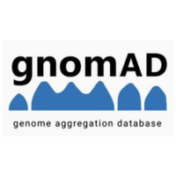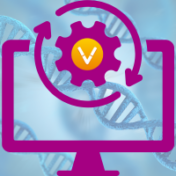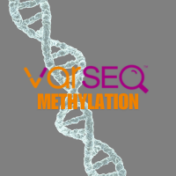Clinical variant analysis experts with fully integrated workflows are often hesitant to upgrade or migrate their workspace, and rightly so. Similarly, those looking for new next-generation sequencing analysis software, whether for secondary (alignment and variant-calling) or tertiary (variant annotation, filtration, interpretation, and reporting) analysis, can be easily daunted by the breadth and depth of the process of setting up a… Read more »
Next-generation sequencing (NGS) embodies the process of elucidating the signal from the noise. Given the genetic data of a patient, ranging from a targeted gene panel to a whole genome, a healthcare provider’s onus is to glean as much actionable information from the detected variants. As the field of NGS has grown and improved, the scope of available genomic markers… Read more »
When prescribing medications, it is important that healthcare providers be aware of any potential risks a drug may pose to a patient. Pharmacogenomics (PGx) is the field of study that informs how a person’s genetic makeup affects their response to medications. This field is an important part of precision medicine and tools like VarSeq PGx (VSPGx) enable clinicians to use… Read more »
At Golden Helix, we’re proud to see how VarSeq is transforming the landscape of genetic research and clinical diagnostics. From variant annotation and filtering to in-depth visualization, VarSeq’s powerful suite of tools helps researchers uncover critical genetic insights with confidence and efficiency. In this blog post, we’re excited to showcase recent publications where VarSeq played a pivotal role in identifying… Read more »
Golden Helix field application scientists curate a set of FAS templates that capture best practices for filtering, which we use when training and onboarding customers. In addition to the basic templates that come default with the software, these more fleshed-out templates are available upon request. This first blog in the series focuses on germline variant analysis. Rare Pathogenic Variants The… Read more »
Next-generation sequencing (NGS) has transformed our ability to detect the genetic causes of diseases. VarSeq is a key tool in this process because it helps users sift through large numbers of genetic variants to find those most likely to cause or contribute to disease. The below publications have demonstrated VarSeq’s usefulness in discovering new gene variants related to neurodevelopmental disorders,… Read more »
We just wrapped up a dynamic and rewarding 2024. Hence, we want to take a moment to celebrate key milestones that have set the stage for our next chapter. This year, we pushed our solutions to new frontiers in clinical genomics. Here are the major accomplishments of last year: 1. Pharmacogenomics: releasing VSPGx entering into a new class of genetic… Read more »
In our recent post on VSWarehouse 3, we discussed how our comprehensive workflow system streamlines genomic analysis pipelines by directly integrating with your existing cloud infrastructure. Today, we will explore how you can use VarSeq to analyze the data produced by these workflows directly in your browser. Bringing VarSeq to Your Browser With VSWarehouse3, our premier variant analysis platform is… Read more »
Following up on our recent post about VSWarehouse 3’s Bring Your Own Cloud capabilities, we wanted to dive deeper into one of its most powerful features: our comprehensive workflow system. This system is designed to streamline genomic analysis pipelines while providing flexible integration with various cloud genomics providers. Understanding VSWarehouse 3 Workflows At its core, VSWarehouse 3’s workflow system is… Read more »
Golden Helix customers are at the forefront of genetic research, using VarSeq to tackle some of the most challenging questions in genomics. From identifying novel variants to uncovering the genetic basis of rare diseases, their work showcases the power of VarSeq in real-world applications. In this blog, we’re highlighting three recent publications that demonstrate how customers are using VarSeq to… Read more »
Thank you to everyone who attended our recent webcast, Bring Your Own Cloud: Clinical Testing at Scale with VSWarehouse 3. We’re thrilled about the level of engagement during the Q&A session and wanted to take the opportunity to elaborate on some of the key questions asked. Here’s a recap of the answers: 1. Is it more expensive to run on… Read more »
Just in time for the holidays, CancerKB 4.0 is now available to incorporate into your cancer analysis workflows! We have termed this release “The Hematological release” as we boast of complete coverage of the NCCN Guidelines recommended therapies and FDA-approved therapies for all hematological cancers in our Drug Sensitivity Interpretations. We have also reviewed and synthesized the consensus from the… Read more »
Guess what, Golden Helix users and interested parties? We will be front and center at the ASHG 2024 Annual Meeting in Denver, Colorado, from November 6-8—and we’ve got a ton to share with you. If you’re attending, make sure you swing by booth #959 because we’re bringing some great new information on our latest updates that are going to take… Read more »
Our VarSeq software continues to support cutting-edge research, enabling scientists worldwide to explore the depths of genetic variants with precision and accuracy. In this blog, we highlight recent publications that leveraged VarSeq for impactful discoveries in pharmacogenomics and familial cancer studies, showcasing the vital role of our tools in advancing personalized medicine and genetic research. Thai pharmacogenomics database −2 (TPGxD-2)… Read more »
Optimizing sample throughput while maintaining quality control is, arguably, the crux of any profitable lab performing a high volume of analysis. We’ve discussed in great detail the flexibility of VSPipeline, our command line automation tool, as well as our full-stack FASTQ to report automation capabilities, and today I’d like to further elucidate on how QC methods fit into the picture…. Read more »
We’re excited to announce the release of gnomAD 4.1 variant frequencies as an annotation track in VarSeq. This latest release addresses key issues from previous versions and introduces joint variant frequencies curated directly from gnomAD. Additionally, we’ve refined our liftover process, offering more accurate GRCh37 tracks. By incorporating this data into the VarSeq data source library, we provide users with… Read more »
I am pleased to announce that VarSeq 2.6.2 is now available! VarSeq 2.6.2 comes jammed-packed with new features and capabilities to advance your NGS analysis workflows. In this blog, I will describe the major changes to the VSPGx workflow, which were the main focus of the release, and I will also talk about other exciting features and new algorithms that… Read more »
Exome and genome sequencing have advanced genetic research, but data analysis remains complex. VarSeq simplifies this by helping researchers identify key genetic changes in rare diseases and cancer, improving screening and diagnosis. Here are recent customer publications that highlight VarSeq usage. Expanded carrier screening for inherited genetic disease using exome and genome sequencing The goal of this study was to… Read more »
Thank you to all our audience members who attended our recent webcast, Combined Impact: New Tools to Assess Complex and Compound Heterozygous Variants with VarSeq. If you would like to view the webcast, follow the link above! As the title suggests, this webcast was all about breaking down the new variant analysis tools in the upcoming VarSeq 2.6.2 release and… Read more »
DNA methylation is becoming more relevant as a clinically important biomarker, and long-read pipelines are making it easy to get this information in the same sequencing run as small variants and larger structural variants. Even though there are no official guidelines for addressing DNA methylation, it is still useful to analyze and evaluate this data, so we would like to… Read more »
















